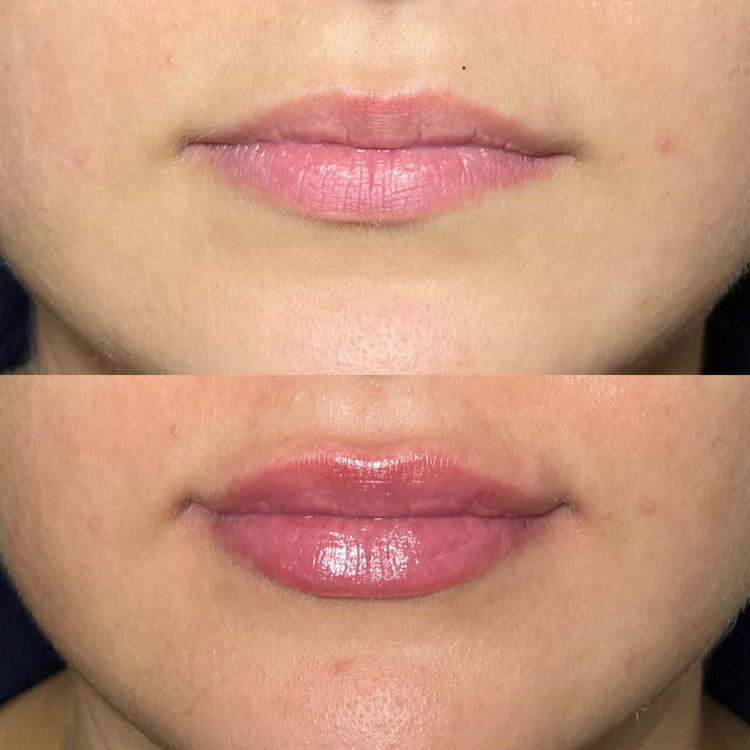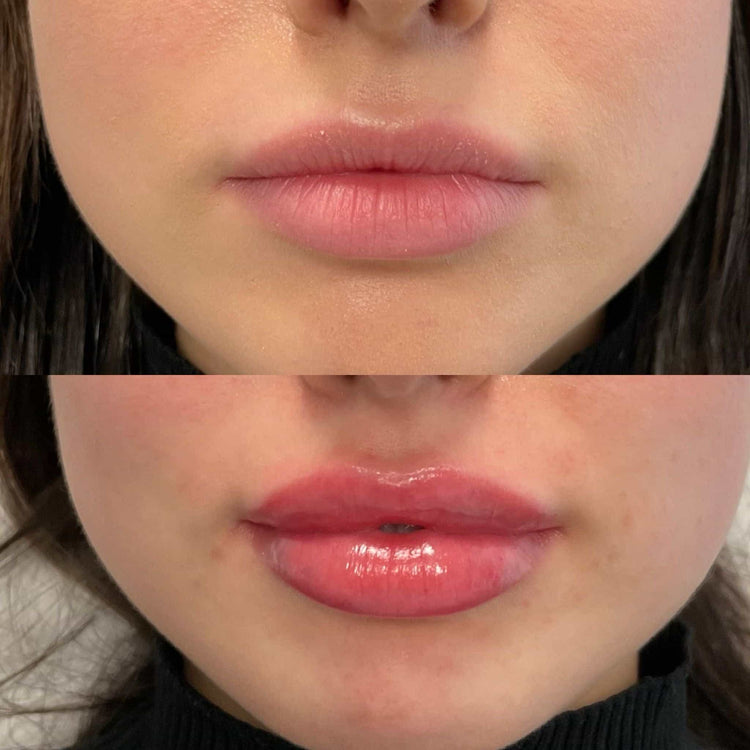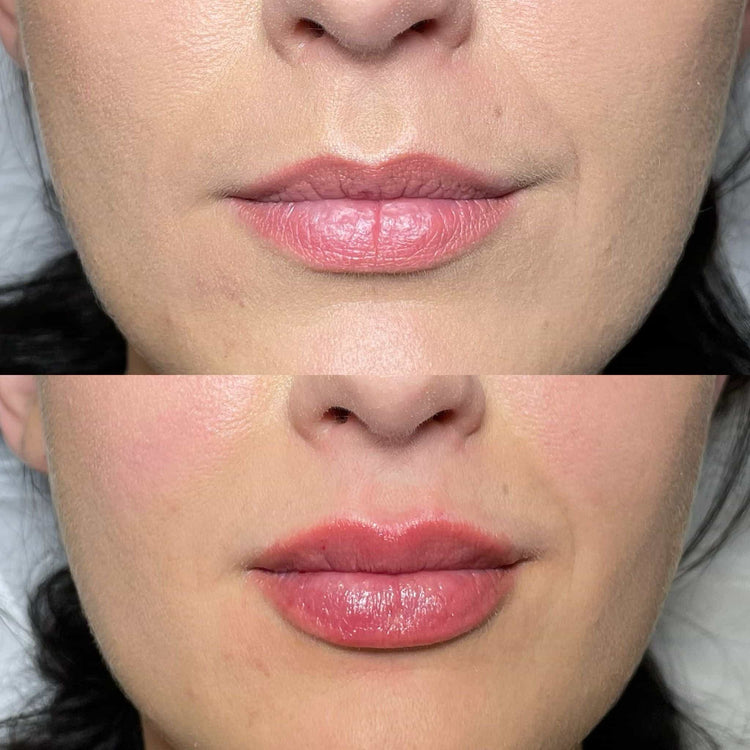Can You Get Lip Injections While Pregnant Or Breastfeeding?
Can You Get Lip Fillers During Pregnancy
For many, pregnancy and breastfeeding are times of incredible transformation. Along with the physical changes, there may be a desire to enhance one’s appearance. One popular choice for facial enhancement is lip fillers. However, considering the potential impact on both mother and baby, it’s crucial to understand the safety of lip injections during these special periods.
Risks to the Mother
While lip fillers can temporarily plump up lips and boost confidence, their use during pregnancy and breastfeeding raises concerns due to a lack of sufficient research on their effects on a developing fetus or nursing infant.
The active ingredients in lip fillers, primarily hyaluronic acid, are generally considered safe for topical use. However, injecting them carries a different set of considerations. The body absorbs these substances differently when injected, and there’s a possibility that some components could cross the placental barrier during pregnancy or be passed through breast milk.
Although no conclusive evidence links lip fillers to harm during pregnancy or breastfeeding, it’s best to err on the side of caution. Potential risks include allergic reactions, swelling, and bruising, which can be more pronounced during hormonal fluctuations associated with these stages.
If you are considering lip fillers, consult your doctor and discuss the potential risks and benefits in detail. They can provide personalized advice based on your individual health history and circumstances.
Risks to the Fetus
For many, pregnancy and breastfeeding are times of incredible transformation. Along with the physical changes, there may be a desire to enhance one’s appearance. One popular choice for facial enhancement is lip fillers. However, considering the potential impact on both mother and baby, it’s crucial to understand the safety of lip injections during these special periods.
While lip fillers can temporarily plump up lips and boost confidence, their use during pregnancy and breastfeeding raises concerns due to a lack of sufficient research on their effects on a developing fetus or nursing infant.
The active ingredients in lip fillers, primarily hyaluronic acid, are generally considered safe for topical use. However, injecting them carries a different set of considerations. The body absorbs these substances differently when injected, and there’s a possibility that some components could cross the placental barrier during pregnancy or be passed through breast milk.
Although no conclusive evidence links lip fillers to harm during pregnancy or breastfeeding, it’s best to err on the side of caution. Potential risks include allergic reactions, swelling, and bruising, which can be more pronounced during hormonal fluctuations associated with these stages.

If you are considering lip fillers, consult your doctor and discuss the potential risks and benefits in detail. They can provide personalized advice based on your individual health history and circumstances.

- Allergic reactions
- Swelling
- Bruising
Alternatives to Lip Injections
For many, pregnancy and breastfeeding are times of incredible transformation. Along with the physical changes, there may be a desire to enhance one’s appearance. One popular choice for facial enhancement is lip fillers. However, considering the potential impact on both mother and baby, it’s crucial to understand the safety of lip injections during these special periods.
While lip fillers can temporarily plump up lips and boost confidence, their use during pregnancy and breastfeeding raises concerns due to a lack of sufficient research on their effects on a developing fetus or nursing infant.
The active ingredients in lip fillers, primarily hyaluronic acid, are generally considered safe for topical use. However, injecting them carries a different set of considerations. The body absorbs these substances differently when injected, and there’s a possibility that some components could cross the placental barrier during pregnancy or be passed through breast milk.
Although no conclusive evidence links lip fillers to harm during pregnancy or breastfeeding, it’s best to err on the side of caution. Potential risks include allergic reactions, swelling, and bruising, which can be more pronounced during hormonal fluctuations associated with these stages.
If you are considering lip fillers, consult your doctor and discuss the potential risks and benefits in detail. They can provide personalized advice based on your individual health history and circumstances.
- Allergic reactions
- Swelling
- Bruising
Alternatives to Lip Injections:
- Lip Plumping Products:
- Over-the-counter lip glosses and balms containing ingredients like menthol or cinnamon can provide a temporary plumping effect.
- Makeup Techniques: Contouring and highlighting techniques can create the illusion of fuller lips.
- Natural Remedies:
- Exfoliating lips gently with sugar scrubs can help improve blood circulation and give a subtle fullness.
- Applying a hydrating lip balm regularly keeps lips plumped and hydrated.
- Lifestyle Changes: Getting enough sleep, managing stress, and staying hydrated can also contribute to healthier-looking lips.
Lip Injections While Breastfeeding
For many, pregnancy and breastfeeding are times of incredible transformation. Along with the physical changes, there may be a desire to enhance one’s appearance. One popular choice for facial enhancement is lip fillers. However, considering the potential impact on both mother and baby, it’s crucial to understand the safety of lip injections during these special periods.
While lip fillers can temporarily plump up lips and boost confidence, their use during pregnancy and breastfeeding raises concerns due to a lack of sufficient research on their effects on a developing fetus or nursing infant.
The active ingredients in lip fillers, primarily hyaluronic acid, are generally considered safe for topical use. However, injecting them carries a different set of considerations. The body absorbs these substances differently when injected, and there’s a possibility that some components could cross the placental barrier during pregnancy or be passed through breast milk.
Although no conclusive evidence links lip fillers to harm during pregnancy or breastfeeding, it’s best to err on the side of caution. Potential risks include allergic reactions, swelling, and bruising, which can be more pronounced during hormonal fluctuations associated with these stages.
If you are considering lip fillers, consult your doctor and discuss the potential risks and benefits in detail. They can provide personalized advice based on your individual health history and circumstances.
- Allergic reactions
- Swelling
- Bruising
Safety Concerns
For many, pregnancy and breastfeeding are times of incredible transformation. Along with the physical changes, there may be a desire to enhance one’s appearance. One popular choice for facial enhancement is lip fillers. However, considering the potential impact on both mother and baby, it’s crucial to understand the safety of lip injections during these special periods.
While lip fillers can temporarily plump up lips and boost confidence, their use during pregnancy and breastfeeding raises concerns due to a lack of sufficient research on their effects on a developing fetus or nursing infant.
The active ingredients in lip fillers, primarily hyaluronic acid, are generally considered safe for topical use. However, injecting them carries a different set of considerations. The body absorbs these substances differently when injected, and there’s a possibility that some components could cross the placental barrier during pregnancy or be passed through breast milk.
Although no conclusive evidence links lip fillers to harm during pregnancy or breastfeeding, it’s best to err on the side of caution. Potential risks include allergic reactions, swelling, and bruising, which can be more pronounced during hormonal fluctuations associated with these stages.
If you are considering lip fillers, consult your doctor and discuss the potential risks and benefits in detail. They can provide personalized advice based on your individual health history and circumstances.
- Allergic reactions
- Swelling
- Bruising
Passing Substances Through Breast Milk
For many, pregnancy and breastfeeding are times of incredible transformation. Along with the physical changes, there may be a desire to enhance one’s appearance. One popular choice for facial enhancement is lip fillers. However, considering the potential impact on both mother and baby, it’s crucial to understand the safety of lip injections during these special periods.
While lip fillers can temporarily plump up lips and boost confidence, their use during pregnancy and breastfeeding raises concerns due to a lack of sufficient research on their effects on a developing fetus or nursing infant. The active ingredients in lip fillers, primarily hyaluronic acid, are generally considered safe for topical use. However, injecting them carries a different set of considerations. The body absorbs these substances differently when injected, and there’s a possibility that some components could cross the placental barrier during pregnancy or be passed through breast milk.

Although no conclusive evidence links lip fillers to harm during pregnancy or breastfeeding, it’s best to err on the side of caution. Potential risks include allergic reactions, swelling, and bruising, which can be more pronounced during hormonal fluctuations associated with these stages. If you are considering lip fillers, consult your doctor and discuss the potential risks and benefits in detail. They can provide personalized advice based on your individual health history and circumstances.
Consult a Healthcare Professional
For many, pregnancy and breastfeeding are times of incredible transformation. Along with the physical changes, there may be a desire to enhance one’s appearance. One popular choice for facial enhancement is lip fillers. However, considering the potential impact on both mother and baby, it’s crucial to understand the safety of lip injections during these special periods.
While lip fillers can temporarily plump up lips and boost confidence, their use during pregnancy and breastfeeding raises concerns due to a lack of sufficient research on their effects on a developing fetus or nursing infant. The active ingredients in lip fillers, primarily hyaluronic acid, are generally considered safe for topical use. However, injecting them carries a different set of considerations. The body absorbs these substances differently when injected, and there’s a possibility that some components could cross the placental barrier during pregnancy or be passed through breast milk.
Although no conclusive evidence links lip fillers to harm during pregnancy or breastfeeding, it’s best to err on the side of caution. Potential risks include allergic reactions, swelling, and bruising, which can be more pronounced during hormonal fluctuations associated with these stages.
If you are considering lip fillers, consult your doctor and discuss the potential risks and benefits in detail. They can provide personalized advice based on your individual health history and circumstances.
Transform your smile, book lip fillers with Dr. Laura Geige at It’s Me & You Clinic
- How Long Does Lip Filler Take To Settle - August 15, 2025
- How Long Does It Take For Kratom Gummies To Work? - August 14, 2025
- How Long Do Results From Traptox Trapezius Botox Treatment Last - August 12, 2025
